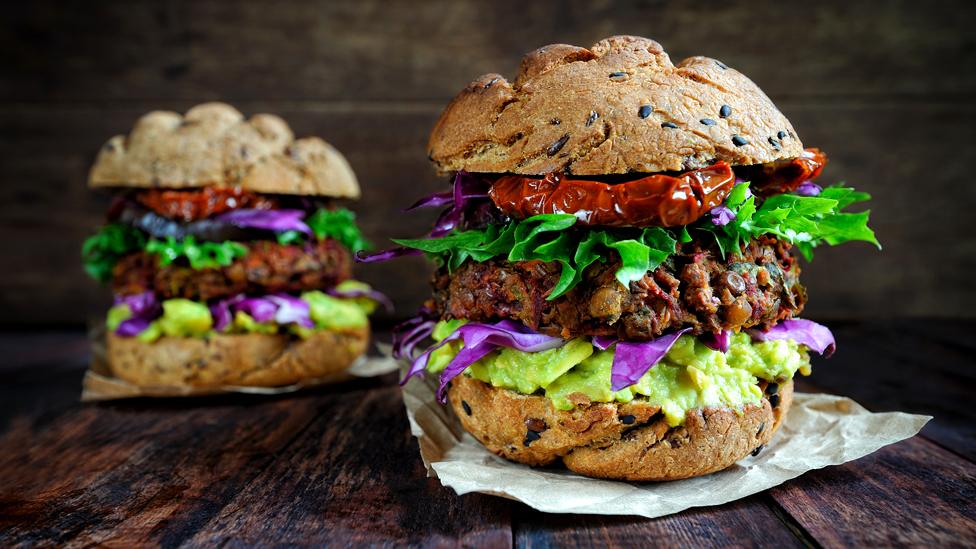Why is climate 'doomism' going viral – and who's fighting it?
- Published

Climate "doomers" believe the world has already lost the battle against global warming. That's wrong - and while that view is spreading online, there are others who are fighting the viral tide.
As he walked down the street wearing a Jurassic Park cap, Charles McBryde raised his smartphone, stared at the camera, and hit the record button.
"Ok, TikTok, I need your help."
Charles is 27 and lives in California. His quirky TikTok videos, external about news, history, and politics have earned him more than 150,000 followers.
In the video in question, recorded in October 2021, he decided it was time for a confession.
"I am a climate doomer," he said. "Since about 2019, I have believed that there's little to nothing that we can do to actually reverse climate change on a global scale."
Climate doomism is the idea that we are past the point of being able to do anything at all about global warming - and that mankind is highly likely to become extinct.
That's wrong, scientists say, but the argument is picking up steam online.
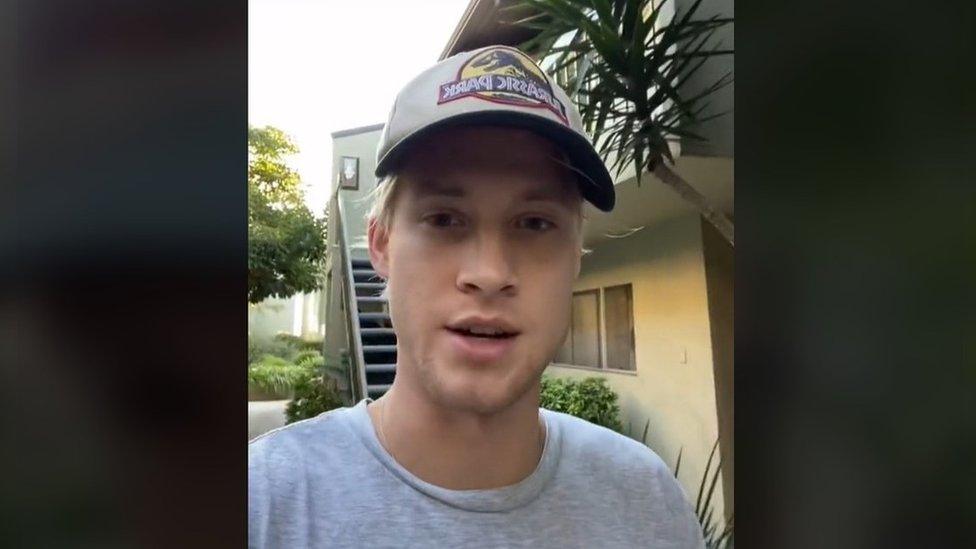
"I am a climate doomer," Charles McBryde told his TikTok followers last October
'Give me hope'
Charles admitted to feeling overwhelmed, anxious and depressed about global warming, but he followed up with a plea.
"I'm calling on the activists and the scientists of TikTok to give me hope," he said. "Convince me that there's something out there that's worth fighting for, that in the end we can achieve victory over this, even if it's only temporary."
And it wasn't long before someone answered.
Facing up to the 'doomers'
Alaina Wood is a sustainability scientist based in Tennessee. On TikTok she's known as thegarbagequeen, external.
After watching Charles' video, she posted a reply, explaining in simple terms why he was wrong.
Alaina makes a habit of challenging climate doomism - a mission she has embraced with a sense of urgency.
"People are giving up on activism because they're like, 'I can't handle it any more... This is too much...' and 'If it really is too late, why am I even trying?'" she says. "Doomism ultimately leads to climate inaction, which is the opposite of what we want."
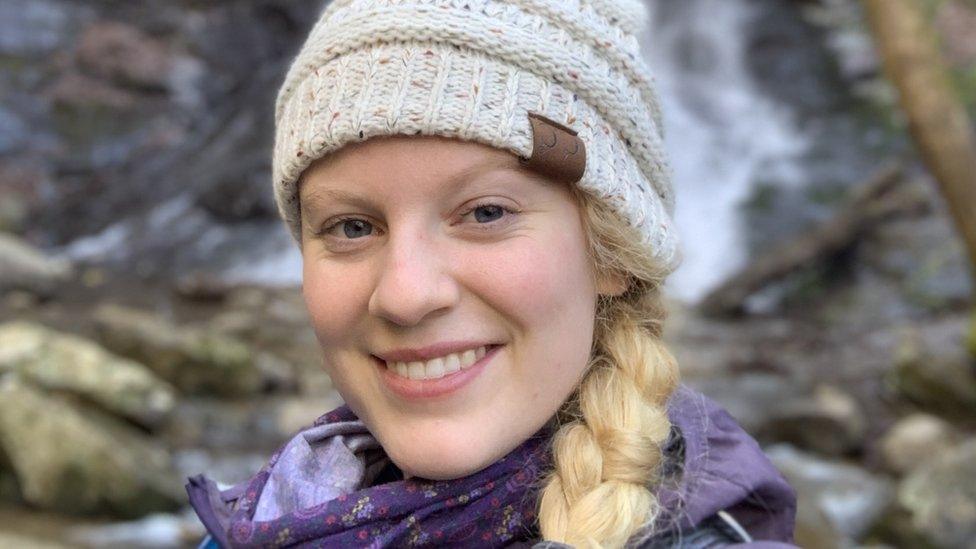
Sustainability scientist and TikToker Alaina Wood is on a mission to reassure people it is not too late for the climate
Why it's not too late
Climate scientist Dr Friederike Otto, who has been working with the UN's Intergovernmental Panel on Climate Change, says: "I don't think it's helpful to pretend that climate change will lead to humanity's extinction."
In its most recent report, the IPCC laid out a detailed plan that it believes could help the world avoid the worst impacts of rising temperatures.
It involves "rapid, deep and immediate" cuts in emissions of greenhouse gases - which trap the sun's heat and make the planet hotter.
"There is no denying that there are large changes across the globe, and that some of them are irreversible," says Dr Otto, a senior lecturer in climate science at the Grantham Institute for Climate Change and the Environment.
"It doesn't mean the world is going to end - but we have to adapt, and we have to stop emitting."
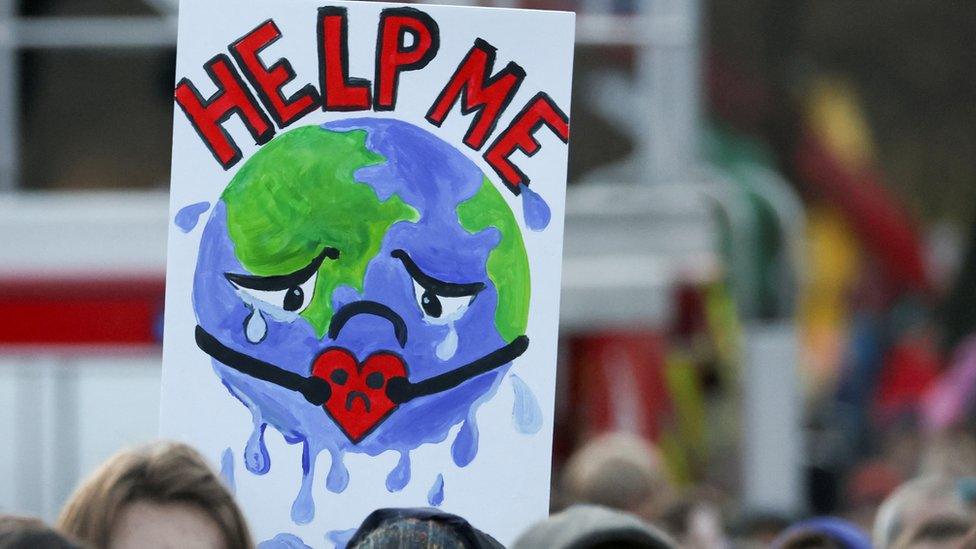
Fertile ground
Last year, the Pew Research Center in the US ran a poll covering 17 countries, external, focusing on attitudes towards climate change.
An overwhelming majority of the respondents said they were willing to change the way they lived to tackle the problem.
But when asked how confident they were that climate action would significantly reduce the effects of global warming, more than half said they had little to no confidence.
Doomism taps into, and exaggerates, that sense of hopelessness. In Charles's case, it all began with a community on Reddit devoted to the potential collapse of civilisation.
"The most apocalyptic language that I would find was actually coming from former climate scientists," Charles says.

Hear more

It's impossible to know whether the people posting the messages Charles read were genuine scientists.
But the posts had a profound effect on him. He admits: "I do think I fell down the rabbit hole."
Alaina Wood, the sustainability scientist, says Charles's story is not unusual.
"I rarely at this point encounter climate denial or any other form of misinformation [on social media]," she says. "It's not people saying, 'Fossil fuels don't cause climate change' ... It's people saying, 'It's too late'."
TikTok's rules forbid misinformation that causes harm. We sent the company some videos that Alaina has debunked in the past. None was found to have violated the rules.
TikTok says it works with accredited fact-checkers to "limit the spread of false or misleading climate information".
Young and pessimistic
Although it can take many forms (and is thus difficult to accurately measure), Alaina says doomism is particularly popular among young people.
"There's people who are climate activists and they're so scared. They want to make change, but they feel they need to spread fear-based content to do so," she says.
"Then there are people who know that fear in general goes viral, and they're just following trends, even if they don't necessarily understand the science."
I've watched several of the videos that she debunked. Invariably, they feature young users voicing despair about the future.
"Let me tell you why I don't know what I want to do with my life and why I'm not planning," says one young woman. "By the year 2050, most of us should be underwater from global warming." But that's a gross exaggeration of what climate scientists are actually telling us.
"A lot of that is often fatalistic humour, but people on TikTok are interpreting that as fact," Alaina says.
But is Charles still among them, after watching Alaina's debunks? Is he still a climate doomer?
"I would say no," he tells me. "I have convinced myself that we can get out of this."
For more information about mental health support, visit the BBC Action Line.
Do you have a story for me? Get in touch, external.
- Published3 October 2021
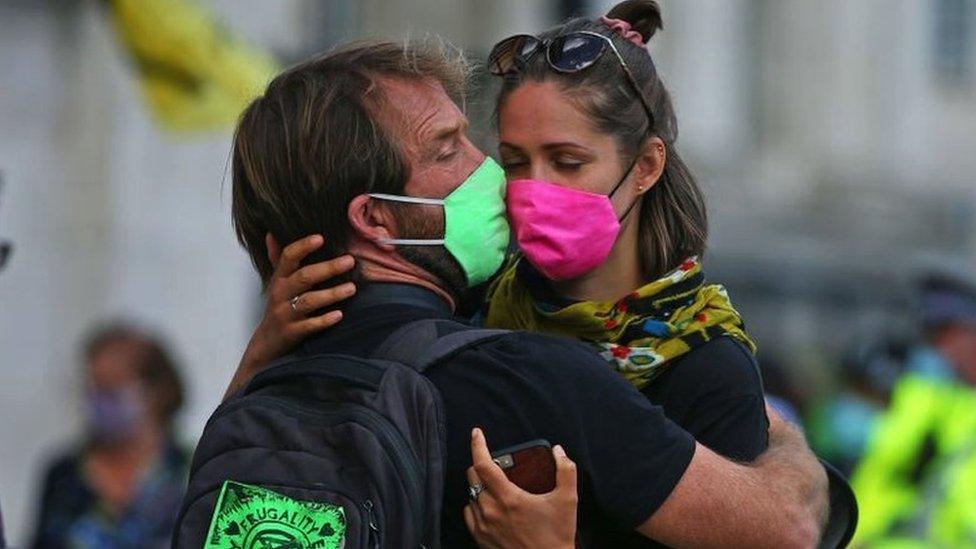
- Published28 April 2022
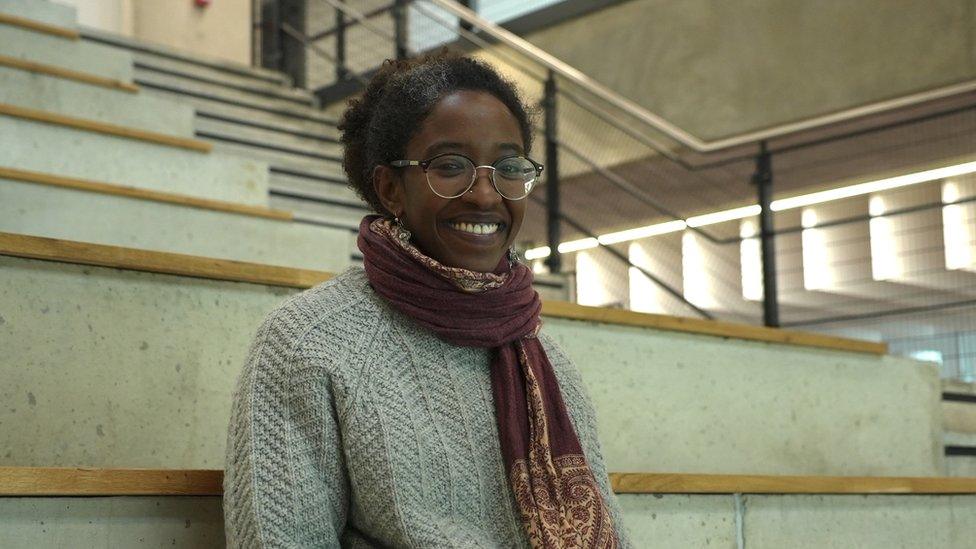
- Published25 October 2021
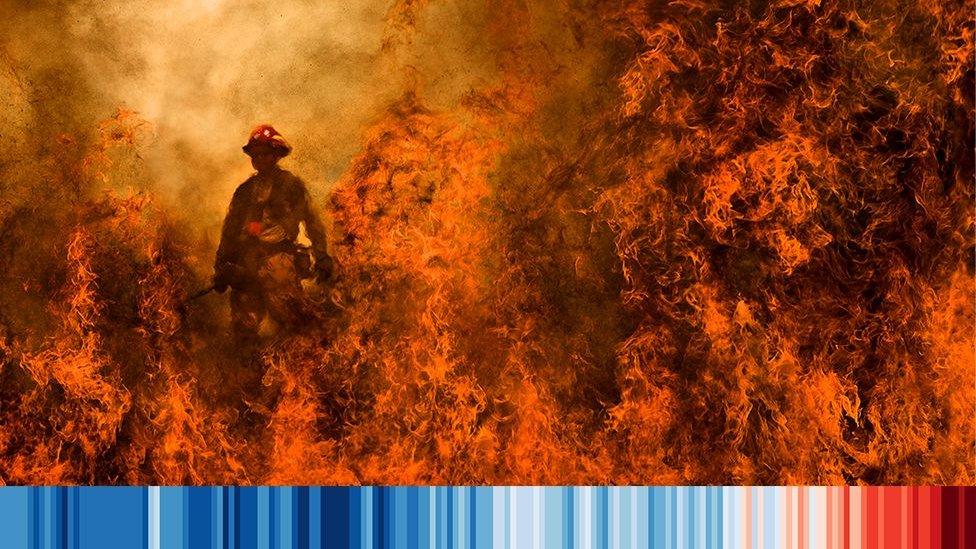
- Published20 May 2020
